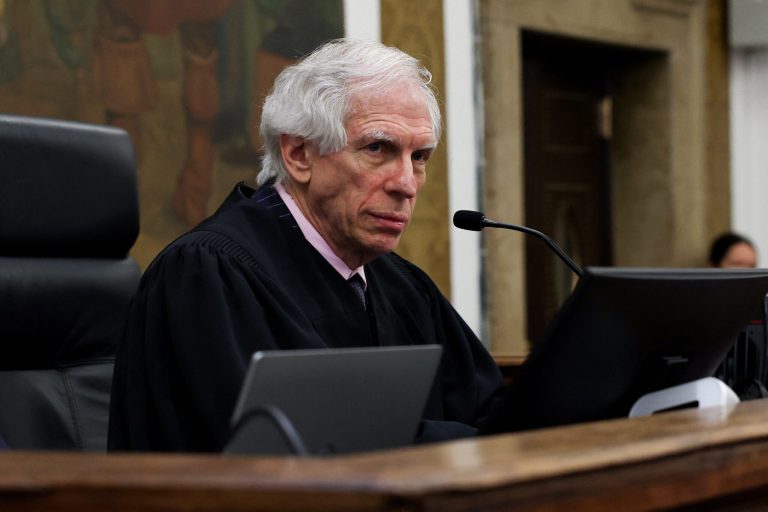
New York Supreme Court Judge Arthur Engoron, who lives in Great Neck, will not recuse himself from Donald Trump’s civil fraud case after being accused by the former president’s attorney of engaging in prohibited communication.
“I have been presiding over this action, and the special proceeding that preceded it, for over 3 1/2 years. The two dockets have a combined 2,624 separate entries,” Engoron wrote in a court document. “I have reviewed tens of thousands of documents in camera (and out), throughout extensive disclosure, motion practice, and the trial. To recuse myself now would result in immense prejudice to the parties, the public, and the judicial process.”
The judge, whose Kensington home was swatted in January, found Trump liable for fraud and imposed a $454 million fine. The case is currently on appeal.
NBC published a story including an interview with high-profile New York City real estate attorney Adam Bailey in May when the attorney said he spoke to Engoron and gave him unsolicited advice on Trump’s case about three weeks before the ruling in February.
Trump’s attorneys requested Engoron recuse himself due to this conversation. Engoron called the “90-second” interaction with Bailey a “nothingburger.”
In court documents published by CNN, Engoron said Bailey “accosted” him “in or about February.” He said Bailey had been “haranguing” him about an executive law but did not “relay any alleged facts” of the case. An executive law, or order, is a document through which the U.S. president manages the federal government’s operations.
Engoron said that during the conversation he had only told Bailey he was wrong and possibly said goodbye as Bailey followed him to his car when he left.
“I would have forgotten all about it by now had Bailey not attempted to burnish his reputation as someone who could influence judges (which would be unethical and possibly illegal, but of which Bailey nonetheless publicly boasts),” Engoron wrote.
He denied that his decision in the civil fraud case was based on his conversation with Bailey.
“I did not initiate, welcome, encourage, engage in or learn from, much less enjoy, Bailey’s tirade,” Engoron wrote.
The judge wrote in his decision that there is no legal basis for a mandatory recusal, leaving the decision up to him on whether or not to recuse himself.
Engoron said he is also not legally obligated to disclose conversations with individuals who do not present relevant facts to the case and only present opinions that are not considered by the judge.
Engoron said that since his ruling over the highly publicized trial, he frequently is approached by strangers who tell him their thoughts on the case. He said these encounters do not influence his rulings, as it did not with the one involving Bailey.
He described Bailey as a “professional acquaintance and a distant friend” before the incident.






